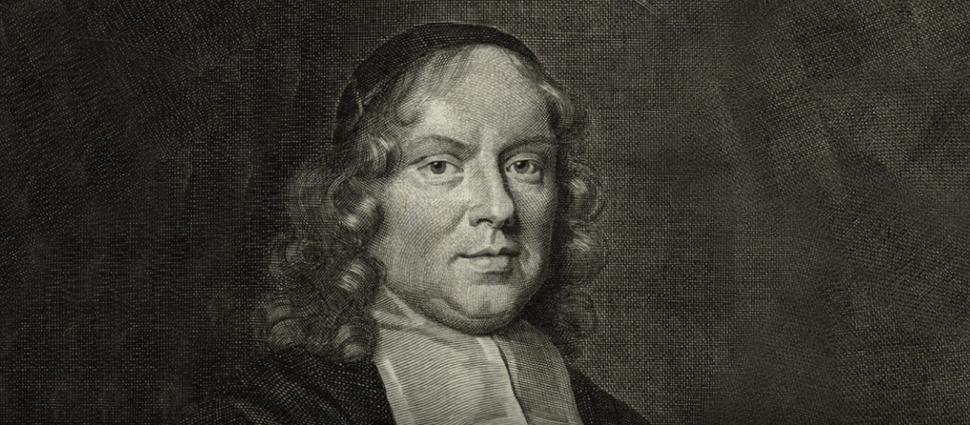David Clarkson on Repentance

David Clarkson joined John Owen as a fellow minister in a church in London in 1682. Owen entered glory soon thereafter, joining the assembly of the righteous made perfect. Clarkson continued on, preaching in Owen’s pulpit for three more years until his own death in 1686. The Banner of Truth Trust first republished Clarkson’s Works (3 volumes) in 1988, and they remain in print today. Volume 1 contains a sermon on repentance based upon Luke 13:3, which I will draw upon for this article.
What is repentance? According to Clarkson, to repent is to turn from former evil ways (Ezek. 14:6). Turning involves two motions: A turning from something and there is a turning to something. In this case, it is a turning from sin and a turning to God or righteousness. Clarkson cites Athanasius as saying that repentance is when the mind is turned from evil to good.
Stated specifically and narrowly, repentance is the turning from evil and sin. And this turning involves three acts: “sorrow for sin, hatred of it, resolution to forsake it.” Sorrow is hearty because it affects the heart, and godly because it is “sorrow for sin, as it is against God.” Hatred for sin is profound and leads to a fight to the death. “He that repents will so hate sin as to seek its death, to crucify, mortify it, rejoice when it is wounded, love that word which smites it, have his heart rise at the approach of it, manifest an antipathy against it.” The resolve to forsake sin is just that: A resolve “never to sin more.” This is a present resolution; it is not enough to say “I will do it hereafter, when I have had a little more pleasure, reaped a little more profit by my sins. He that will not forsake it presently, to-day, while it is called to-day, has no true resolution, is far from truly repenting.”
What relationship does repentance have with the Gospel and the Law? Repentance has no relationship whatsoever with the Law, that is, with the covenant of works. There is no place for repentance in the covenant of works, because it doesn’t command repentance or promise any benefit upon repentance. Its promises pertain to perfect obedience only. Consequently, “they understand not the law, what the covenant of works is, who make repentance legal.”
Repentance functions within the covenant of grace. It is “an evangelical duty; a gospel, a new-covenant duty.” The Gospel requires and commands repentance (Acts 17:30). The Gospel, therefore, does not merely contain a news report about Jesus—it also includes our response to the news that Jesus is both Lord and Savior (see the post, What is the Gospel?).
What is the relationship between repentance and pardon of sins? Repentance is a necessary condition for pardon. “God offers, gives remission of sins, upon condition of repentance.” Solomon looked for pardon upon the condition of repentance (2 Chron. 6:26-27), and God grants repentance upon the same condition (2 Chron. 7:14). Clarkson observes that Christ does himself what he commands us to do. If our brother repents, we are to forgive him (Luke 17:3). Likewise, if we repent, Jesus will forgive us (Acts 3:19; 2:38; 1 John 1:9).
Repentance, therefore, is an antecedent qualification, condition or means of life and salvation. It is antecedent because “there must be no salvation till first there be repentance.” It is a qualification because he “that is in love with sin, is not fit for heaven.” It is a condition, because without it you will perish (Luke 13:3). It is a means and way to life because it is Christ’s highway to life (Acts 11:18; 2:38). Clarkson further notes that repentance remains an antecedent condition for pardon after conversion (2 Chron. 7:14; Rev. 2:4-5; Rev. 3:3; Prov. 28:13).
Although repentance is a condition of the Gospel, Clarkson is careful to explain what kind of condition it is. It is not a legal or meritorious condition. God pardons us “when we repent, not because we repent; it is via, not causa; a duty, not desert; a means, no merit; a qualification, necessary ratione præsentiæ, not efficientiæ.” Repentance is a necessary condition with respect to its presence and not to its efficacy because it does not “satisfy God, or make any amends for the wrong sin has done him.”
Repentance is a Gospel duty to turn from sin by being sorrowful for it, by hating it, and by resolving to forsake it. It is necessary for the remission of sins. God will only forgive the penitent. No repentance, no remission.
D. Patrick Ramsey (@DPatrickRamsey) is pastor of Nashua Orthodox Presbyterian Church in Edinburg, Pennsylvania. He is a co-author (with Joel Beeke) of An Analysis of Herman Witsius's The Economy of the Covenants and author of A Portrait of Christ.
Related Links
- Grace Worth Fighting For by Danny Hyde
- Right with God: The Doctrine of Justification (Audio Disk Set | MP3 Disk Set | MP3 Download Set)
- The Gospel Pure and Simple (Audio Disk Set | MP3 Disk Set | MP3 Download Set)
- Antinomianism (Print Booket | PDF Download)





